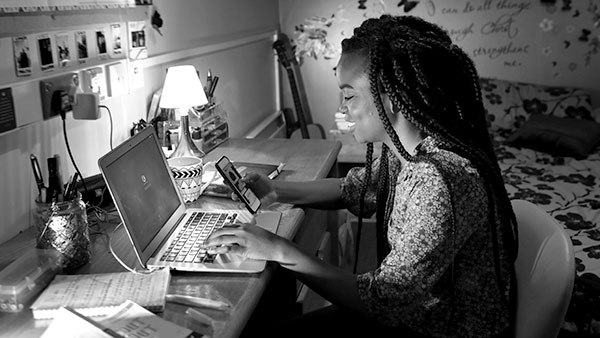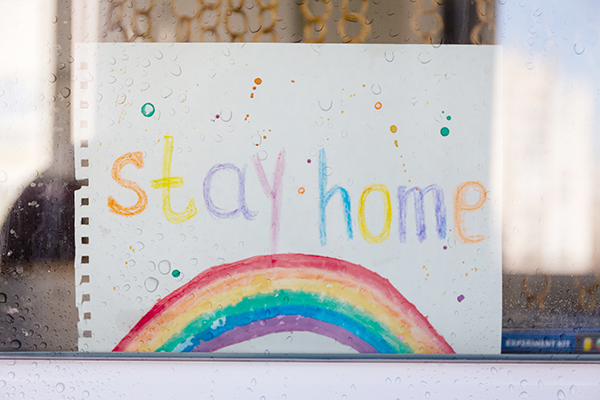As I said in my ever so brief blog last Friday I was on last week's Any Questions from Kingston University. It was a good night with a conversation that was probably enhanced by none of the panellists being an official Party spokesperson.
It was a nice start to the evening to find out (of course I should have known already) that both Bonnie Greer and Lord Ramsbotham are Fellows (and I am going to try now to recruit the final panellist Tim Montgomery!)
I guess I am on the programme as much because of my past as my present role, so it is a challenge to get the right balance between my personal views and the need to protect the RSA's vital political independence.
I'm sure I'll hear soon enough if Fellows think I got it wrong.
There were a couple of moments in the programme which connected with the work here at John Adam Street.
One was the chance for me to vent, again, my concerns about the divide between state and independent schools. As I said in the programme, I don't condemn those who provide or send their children to private schools (I wouldn't have many friends if I did). But I do worry about the most privileged pupils being educated in schools where it is hard to fail and the least privileged in schools where it is hard to succeed.
In the past I have suggested that the RSA might try to convene local discussions to explore how well-off parents might be encouraged to keep their children in the state sector. My thoughts haven't got much further but any views would be welcome.
The discussion also reminded me of the gap between what we say about the kind of society in which we want to live in and how we respond to questions about our own lives.
When I argued that the abolition of inheritance tax could not be a priority if we want a fairer society and a more productive economy, I got a good hand of applause. But when Jonathan Dimbleby then asked the audience if they thought the tax should be abolished they voted overwhelmingly in favour.
It shows how important the framing of an issue is.
If we are asked what we want for ourselves without any reference to our wider idea of a better future, and without being asked to think about the trade-offs involved in any choice, our answers will tend to be narrowly self-interested.
But when a policy is placed in a fuller context - including the wider good - we may reach different conclusions.
Which goes to underline two things:
First, that most opinion polls about policy options are a waste of time and tend by their superficial nature simply to reflect our most unthinking responses.
Second, the need to move from government-centric political discourse ("what I want the politicians to do for me") to a citizen centric approach ("what kind of future we want and what we need to do to create it").
Apologies again for the holiday blog break I will make up for it in the weeks to come.
Damon - I really enjoyed your comment. I think individual empowerment is only achieved alongside strategies of collective empowerment - including bringing alive the policy dilemmas and trade offs. Many people who think hard about public service reform have come to the conclusion that this issue of reconciling individual and collective choice and empowerment is one of the big future policy challenges.
Bob, given the importance of our competency based Opening Minds curriculum to the Willingsworth Academy and our recognition that rising expectations is a crucial aim for the new school I hope you can rest assured.
Thanks, Tony, I agree with the sentiment. Getting the practice right is the challenge.
Related articles
-
-
How young people are shaping social change despite Covid-19 challenges
Aidan Daly
Despite the pandemic, school pupils are demonstrating creative confidence and a commitment to making their communities a better place.
-
Is the lockdown helping us realise the value of art and creativity?
Georgina Chatfield
Anyone in education knows we so often have to make the case for the value of arts and creative activities. The lockdown gives us a chance to recognise their value – now and moving forward.




Join the discussion
Comments
Please login to post a comment or reply
Don't have an account? Click here to register.
What do we want for ourselves? Surely a coherent community culture, without which social inequality is inevitable.
It seems to me that the deepest schism is between families who cohere and function, and those who don't. Parents who invest in their children start doing so before their birth, treat parenthood as a creative opportunity and pay close attention to every incident in the child's growing life, playing back its significance into the child's awareness and behaviour. This is full-time work, 24/7. It requires neither wealth nor formal education, but depends crucially on the integrity and moral strength of the informal culture learned at home.
What emerge from this kind of parenting are confident, self-respecting youngsters who are keen to explore and learn about every aspect of the world around them. And self-respect automatically entails other-respect.
It seems to me (who mostly deal with parents and children of this kind, but from all walks of life) that our full attention should focus on bringing all parents into this category. Unless children who share a school also share a substantial culture acquired pre-school, very little good can happen there. Teachers cannot achieve what parents do not at least attempt.
Our own children attended state schools throughout. They drew life-long benefit from "The Louth Plan", sharing their primary and middle schools with all their neighbours. But they settled gratefully into the selective upper school where self-disciplined learning was the norm. They would never have achieved their full potential if the middle school environment had been the only one on offer.
We were glad to contribute fully at all levels, along with many other parents, but it did not stop the regime polarising retrogressively since.
The state should provide ample opportunity for all children to achieve their potential, whether academic or vocational. But we rely on parents to hit the ground running and function 110%, from the beginning. It is time to respect, celebrate and support those who do. They are the engineroom of health in all its manifestations, and health can be very infectious if we let it be.
I read Peter's comments with great interest. Having worked within and researched projects that seek to increase parents' invovlement in their children's education, I am aware just how crucial the role of trust is. Often changing their child's future requires parents to change their interpretation of their own past, an act that takes more courage than you might imagine. Book Start Plus projects around the country have put pleasure and confidence to explore back in the hands of young families. Many of these are examples of third sector projects creating advantage and more than profit. Yet they do not stand alone. The bridges they build to statuatory services have to lead somewhere both safe and useful to go. In not a few cases, empowering work at the local level is imperiled by agendas imposed from above. This raises the question for me, how does the building of local trust become factored into larger policy decision making processes? How is it made to count? How does it become respected and not trespassed across lightly? So many empowerment projects, whether they be community development, family support,or children's citizenship create a hot house of limited good relations that bump up against a very disillusioning glass ceiling. I agree that the terms of the contract between people and public services need to be rewritten, but all the components of empowerment need to be examined without ringfencing the extent to which the flow of relations and ccnsequences is re-imagined.
Just read Matthew's blog - would like to comment about independent, state-funded v. public schools. Have sent my own children to both types, have been a state-school primary and secondary governor; am about to join Teach First, a powerhouse for reform, addressing educational disadvantage through transforming exceptional graduates into inspiring and effective teachers and leaders - who will work in some of our most disadvantaged children. Until those who have had the benefit of the best of our education system are prepared to take their place in the trenches, or the chalkface, of our troubled cities - the divide will continue to grow.